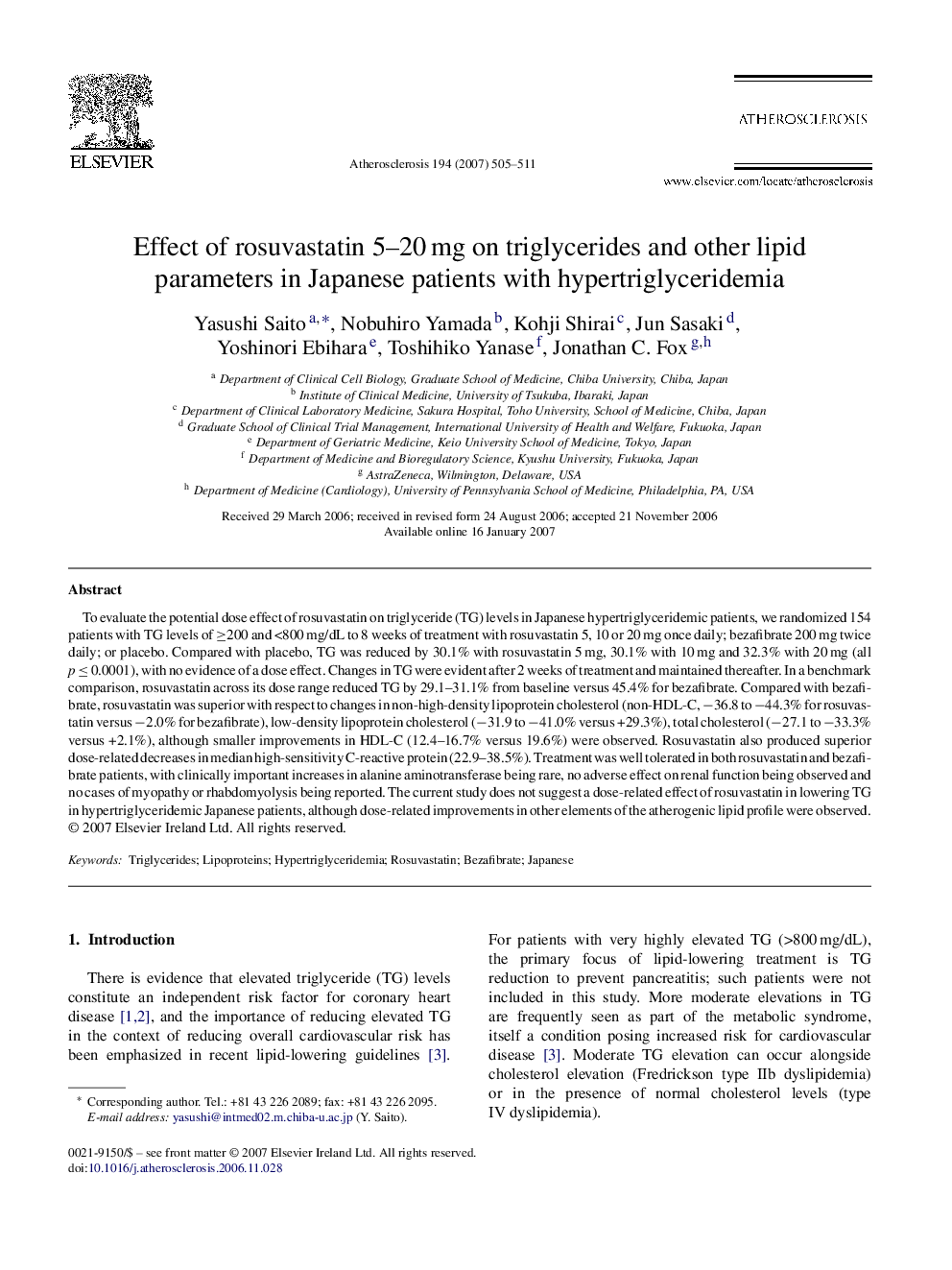| Article ID | Journal | Published Year | Pages | File Type |
|---|---|---|---|---|
| 2894452 | Atherosclerosis | 2007 | 7 Pages |
To evaluate the potential dose effect of rosuvastatin on triglyceride (TG) levels in Japanese hypertriglyceridemic patients, we randomized 154 patients with TG levels of ≥200 and <800 mg/dL to 8 weeks of treatment with rosuvastatin 5, 10 or 20 mg once daily; bezafibrate 200 mg twice daily; or placebo. Compared with placebo, TG was reduced by 30.1% with rosuvastatin 5 mg, 30.1% with 10 mg and 32.3% with 20 mg (all p ≤ 0.0001), with no evidence of a dose effect. Changes in TG were evident after 2 weeks of treatment and maintained thereafter. In a benchmark comparison, rosuvastatin across its dose range reduced TG by 29.1–31.1% from baseline versus 45.4% for bezafibrate. Compared with bezafibrate, rosuvastatin was superior with respect to changes in non-high-density lipoprotein cholesterol (non-HDL-C, −36.8 to −44.3% for rosuvastatin versus −2.0% for bezafibrate), low-density lipoprotein cholesterol (−31.9 to −41.0% versus +29.3%), total cholesterol (−27.1 to −33.3% versus +2.1%), although smaller improvements in HDL-C (12.4–16.7% versus 19.6%) were observed. Rosuvastatin also produced superior dose-related decreases in median high-sensitivity C-reactive protein (22.9–38.5%). Treatment was well tolerated in both rosuvastatin and bezafibrate patients, with clinically important increases in alanine aminotransferase being rare, no adverse effect on renal function being observed and no cases of myopathy or rhabdomyolysis being reported. The current study does not suggest a dose-related effect of rosuvastatin in lowering TG in hypertriglyceridemic Japanese patients, although dose-related improvements in other elements of the atherogenic lipid profile were observed.
